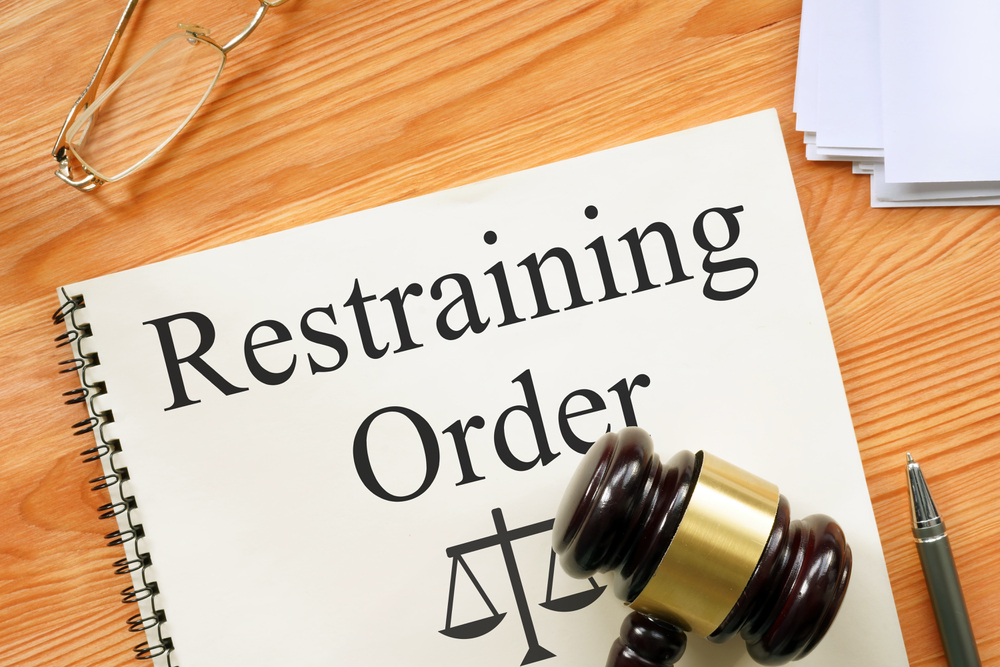In January 2024, New Jersey expanded its definition of domestic violence to include coercive control, offering greater protections for victims of non-physical forms of abuse. This means that victims of psychological, emotional, financial, and other types of abuse can now receive the same protections and remedies as someone who has been physically harmed. If you are experiencing coercive control, understanding how to obtain a restraining order can be a crucial step toward reclaiming your autonomy and safety.
Key Takeaways
- New Jersey law now recognizes coercive control, a form of non-physical abuse, as domestic violence, offering greater protection to victims.
- Coercive control involves patterns of emotional, psychological, and financial abuse, aiming to dominate and isolate the victim, stripping them of their independence.
- Victims can obtain a Temporary Restraining Order (TRO) for immediate protection and a Final Restraining Order (FRO) for long-term safety by proving coercive control in court.
- A lawyer can help gather evidence, file necessary documents, and represent the victim in court to secure an FRO against the abuser.
What is Coercive Control?
Coercive control is a pattern of behavior used by an abuser to dominate and manipulate the victim over time. Unlike physical violence, coercive control often involves subtle forms of emotional, psychological, and financial abuse. These tactics may include isolating the victim from family and friends, monitoring movements, controlling finances, or using threats and intimidation to force compliance. The goal of coercive control is to strip the victim of independence, leaving him or her dependent on the abuser and unable to escape the relationship.

Temporary and Final Restraining Orders in New Jersey
What is a Restraining Order?
A restraining order is a legal order issued by a court to protect an individual from further harm or harassment by an abuser. In New Jersey, there are two types of restraining orders: Temporary Restraining Orders (TRO) and Final Restraining Orders (FRO). A TRO offers immediate, short-term protection and can be obtained quickly if you are in danger. An FRO provides long-term protection and is granted after a court hearing where evidence of abuse is presented.
Can You Get a Restraining Order for Coercive Control in NJ?
Yes, you can obtain a restraining order based on coercive control in New Jersey. With the recent changes to the law, coercive control is now recognized as a form of domestic violence. This means that victims of coercive control can seek the same legal protections as those experiencing physical abuse. To obtain a restraining order, you must demonstrate to the court that the abuser’s behavior falls within the definition of coercive control and that you fear for your safety.
How to Get a TRO and FRO
If you believe you are a victim of coercive control, you can follow these steps to obtain a TRO and FRO:
- File a Complaint: Go to your local police department or courthouse to file a domestic violence complaint. Be prepared to provide detailed information about the coercive control you have experienced.
- Request a TRO: Along with your complaint, request a Temporary Restraining Order (TRO) for immediate protection. A judge will review your request, and if granted, the TRO will take effect immediately.
- Attend a Hearing for an FRO: Within 10 days of receiving a TRO, a court hearing will be scheduled to determine whether a Final Restraining Order (FRO) should be issued. During the hearing, both parties can present evidence and testify. The judge will decide whether to grant the FRO based on the evidence of coercive control.
- Follow the Court’s Instructions: If an FRO is granted, it will outline specific provisions, such as no-contact orders or custody arrangements. Make sure to follow all court instructions and keep a copy of the order with you at all times.

When Abusers Use Family Court to Continue Control: Recognizing Litigation Abuse in New Jersey
How Can an NJ Lawyer Help You Get a Restraining Order?
A lawyer can play a critical role in helping you obtain a Final Restraining Order (FRO) for coercive control by providing legal knowledge, guidance, and support throughout the process. Lawyers, like those at Ziegler Law Group, LLC, can evaluate your situation and determine if the treatment you have experienced qualifies as coercive control. They will then help you gather evidence to support your case, including text messages, emails, witness statements, and financial records to show the court a pattern of coercive behavior.
Lawyers can also help you prepare and file all the necessary legal documents, including the initial domestic violence complaint and the request for a Temporary Restraining Order (TRO). They will ensure that your complaint clearly articulates the coercive control you have experienced. During the court hearing for the FRO, your lawyers will represent you, presenting your case to the judge. They will cross-examine the abuser, challenge any false claims, and advocate on your behalf to show that an FRO is necessary for your protection.
In addition to legal representation, a lawyer can help you develop a safety plan to protect yourself while the case is pending, including advising on steps to take if the abuser violates the TRO.
Resource Box
-
National Domestic Violence Hotline:
-
Phone: 1-800-799-SAFE (7233)
-
Chat: Online Chat
-
Text: “START” to 88788
-
-
Local Support Groups or Shelters in New Jersey:
-
To find local resources, you can visit:
-
For immediate help, consider contacting:
-
New Jersey Coalition to End Domestic Violence
-
Phone: 609-584-8107
-
Website: NJCEADV
-
-
Additional resources include:
-
Jersey Battered Women’s Services (JBWS)
-
Phone: 973-267-4763
-
Services: Emergency shelter, counseling, legal advocacy
- Website: https://jbws.org/
-
-
Women Aware
-
Phone: 732-249-4900
-
Services: Domestic violence services, shelter, legal advocacy
- Website: https://womenaware.net/
-
-
-
-
-
Legal Aid – Ziegler Law Group, LLC:
-
Specialty: Domestic Violence, Family Law, Divorce
-
Phone: 973-533-1100
-
Location: New Jersey, USA
-
Website: https://zieglerlawgroupllc.com/
-
Download –
- Overcoming Domestic Violence in NJ
- The Impact of Domestic Violence on Children
- Your Guide to Safety and Legal Protection: Domestic Violence Legal Services
Contact an NJ Domestic Violence Attorney Today to Learn More
Coercive control can be difficult to escape, but you can get legal protection and move forward with your life. If you are experiencing coercive control and need help obtaining a restraining order, it is crucial to seek legal assistance. At Ziegler Law Group, LLC, our experienced domestic violence attorneys understand the complexities of coercive control and can guide you through the process of securing the protection you need. Contact us today at 973-533-1100 for a confidential consultation and take the first step toward safeguarding your future.







